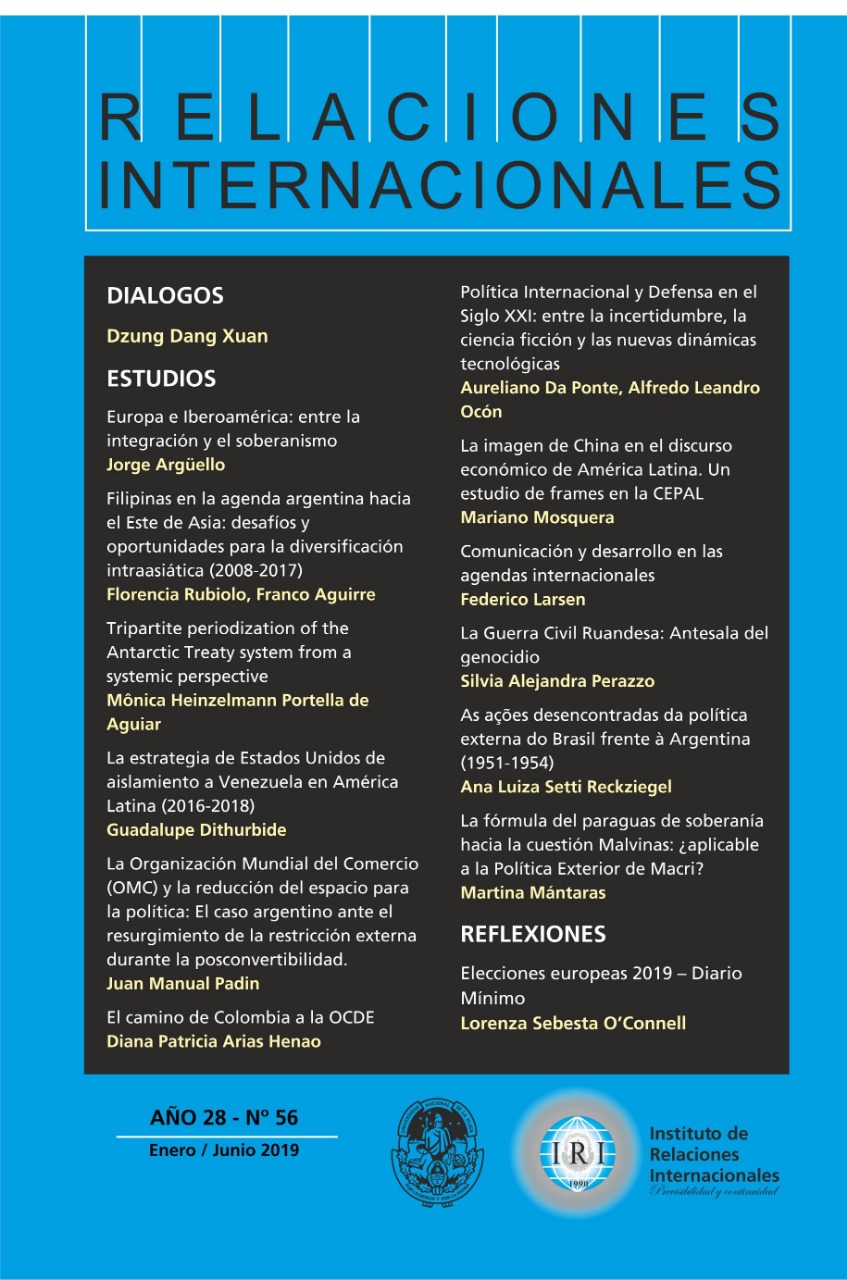The mismatched actions of Brazil's foreign policy vis-à-vis Argentina (1951-1954)
DOI:
https://doi.org/10.24215/23142766e062Keywords:
Foreign Policy, International Relations, Internal Policy, Regional BlocksAbstract
This article aims to address the actions of Brazilian state agents regarding relations with Argentina during the governments of Getúlio Vargas (1951-1954) and Juan Domingo Perón (1950-1955). Two aproaches disputed the primacy in defining the way of foreign policy towards Argentina: the presidential one, which advocated for the rapprochement between the two countries, and that of the Ministry of Foreign Relations, permeated by tensions and divergences on an intradiplomatic level. To understand this scenario, an important analysis variable was Brazilian domestic politics, in which there were groups that manifested both in favour and against the initiative to bring the nations closer together.
Another variable was the influence of the United States, which were attentive to all integration negotiations, contrary to the formation of regional blocs under the American subsystem of power as they were.
Downloads
Downloads
Published
How to Cite
Issue
Section
License
Aquellos autores/as que tengan publicaciones con esta revista, aceptan los términos siguientes:
- Los autores/as conservarán sus derechos de autor y garantizarán a la revista el derecho de primera publicación de su obra. A partir de noviembre del 2020 los artículos se publicarán en la revista bajo una licencia Creative Commons Atribución- NoComercial-CompartirIgual 4.0 Internacional (CC BY-NC-SA 4.0). Acorde a estos términos, el material se puede compartir (copiar y redistribuir en cualquier medio o formato) y adaptar (remezclar, transformar y crear a partir del material otra obra), siempre que a) se cite la autoría y la fuente original de su publicación (revista y URL de la obra), b) no se use para fines comerciales y c) se mantengan los mismos términos de la licencia.
Previo a esta fecha los artículos se publicaron en la revista bajo una Licencia de reconocimiento de Creative Commons (BY-SA 2.5). - Los autores/as podrán adoptar otros acuerdos de licencia no exclusiva de distribución de la versión de la obra publicada (p. ej.: depositarla en un archivo telemático institucional o publicarla en un volumen monográfico) siempre que se indique la publicación inicial en esta revista.
- Se permite y recomienda a los autores/as difundir su obra a través de Internet (p. ej.: en archivos telemáticos institucionales o en su página web) antes y durante el proceso de envío, lo cual puede producir intercambios interesantes y aumentar las citas de la obra publicada. (Véase El efecto del acceso abierto).

























